Iraq's Sunni tribes face lonely battle against Islamic State
By Orla Guerin
Sheikh Sabah al-Issawi is worried about death. He's not concerned for himself, but for all those he would leave behind - three wives, and 19 children.
The sheikh's fear is not abstract. As a Sunni tribal leader in Iraq fighting Islamic State (IS) - fellow Sunnis - he's on a hit list. He survived an attack by two IS suicide bombers earlier this month."They are the only enemy that targets everything," said the sheikh, a lean man with a neatly trimmed white beard, and a red and white checked tribal headdress.
"They are targeting life in all its forms - women, children, funerals, mosques, clerics and tribal chiefs. They don't leave anything behind."
The sheikh was our courteous host for a trip into the vast Western province of Anbar - Iraq's largest - most of which is now controlled by the extremists. They took the provincial capital, Ramadi, in May.
We travelled, by armoured car, to the bullet-riddled council building in the town of Amiriyat al-Falluja. That's where the bombers struck, on 9 June, when the council was in session.
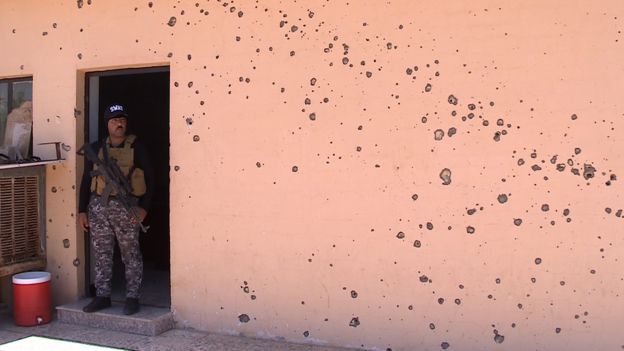
"They got to the entrance and started firing in the direction of the meeting hall. Councillors and tribal leaders are their main targets. All of us are under threat," he said.
The attackers were shot before they could get inside, but after they killed three people.
"From the window upstairs I saw the body of one of our guards," said the sheikh. "Then I saw the bodies of my two cousins, who had been waiting for me, being loaded into a pickup truck."
For the sheikh it was the latest in a series of personal losses.
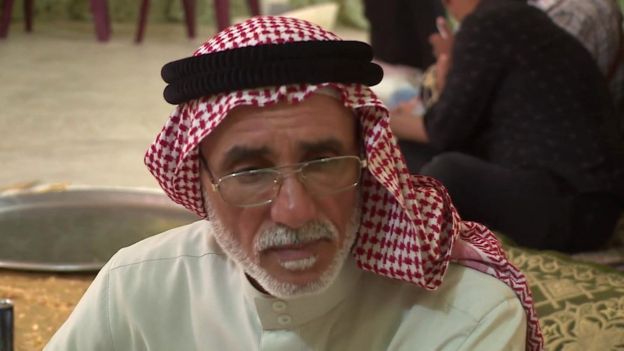
Tribal leaders in the town are determined to hold off the extremists, who they refer to by the Arabic acronym Daesh. But they say it's a lonely battle - with little support from Iraq's Shia-dominated government, or from the US-led coalition.
"When Daesh carried out their big attack last October, we waited five hours for US air strikes," said the sheikh. "Most of their planes go back without dropping their bombs. They say they can't identify the targets but you can see them with the naked eye."
The tribes in the area fought with the Americans from 2006 to 2008 - "shoulder to shoulder" says the sheikh - and helped them drive out al-Qaeda in Iraq, the forerunner of IS.
They paid a high price, with the loss of around 350 men. The death toll included two of the sheikh's brothers.
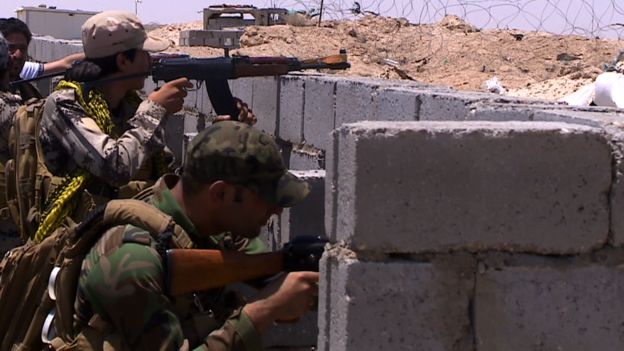
President Obama wants tribal fighters trained, and integrated into the mainly Shia Iraqi army. But America doesn't call the shots here - with the government or with the tribes.
"We blame President Obama for not keeping his promises," said Sheikh Abdullah Humedi al-Boesa, a senior tribal leader.
"Sunnis have been displaced. They are being slaughtered. He misled us. The Americans have no credibility. We no longer trust what they say."
Huge sacrifices
The heavy-set tribal elder stood near a breezeblock observation post on the frontline, flanked by fighters. They were anxious for us to see their weapons - or rather what's wrong with them.A powerfully built young man approached on crutches to show us his government issue AK-47 assault rifle.
"This is new, " said 26-year old Yasser Ahmed. "But we can't use it. It fires five or 10 bullets and then stops. It's only good for hunting. If President Obama, and our prime minister, want us to fight Daesh they should give us powerful weapons."
He refuses to leave the frontline, even though he is outgunned, and maimed. An IS car bomb last year robbed him of his father, more than 20 other relatives, and one of his legs.
"We have made huge sacrifices since 2007 and we have never thought about abandoning the fight," he said.
"We are defending our honour and our land and securing our region."
Tribal leaders emphasise the strategic importance of that region, which is close to the capital. Their frontline is about 25km (15 miles) from Baghdad airport. The tribes say that if the extremists break through their defences, the airport will be within reach of IS rockets.
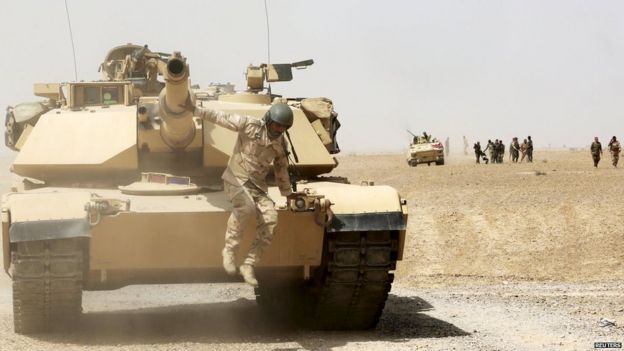
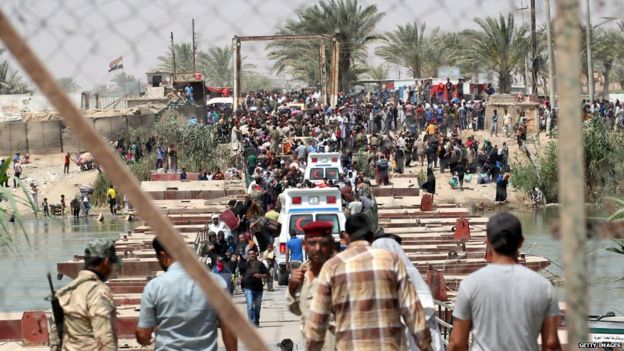
A gold-coloured paper tablecloth was placed on the ground and three enormous silver platters were brought in. There were mounds of yellow rice with nuts and raisins, topped with roast chicken, and lamb falling off the bone. Along with side dishes of salad and relish, there were piles of round flat bread.
As he ate handfuls of rice, without dropping a grain, the Sheikh blamed the lack of arms from Baghdad on Iraq's deep sectarian divide.
"The government believes that when weapons are given to Sunni tribes, they will be handed over to Daesh," he said. "Some of them believe that all Sunnis support Daesh. The origin of this fear is sectarian."
He says most of Anbar's Sunni tribes are remaining on the sidelines of the fight against IS - some because they support the extremists, but others because they remember the past.
"The first group believe in the Daesh doctrines," he said. "The second group hate Daesh, but they saw what happened to the tribes who fought al-Qaeda between 2006 and 2008. Afterwards the government turned against them and arrested them. Most have been killed or jailed."
As we finished our lunch with chunks of succulent watermelon, some of the sheikh's younger children darted in and out of the room. He knows IS will keep trying to leave them fatherless.
"When I think of what could happen, I sometimes wish I had never married."
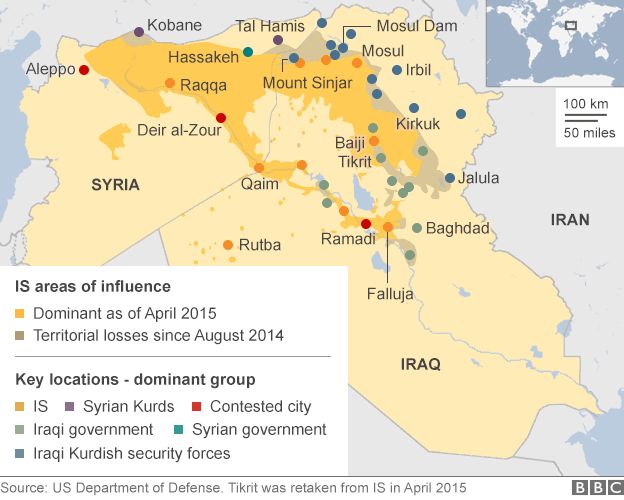


0 Comments:
Post a Comment
Subscribe to Post Comments [Atom]
<< Home